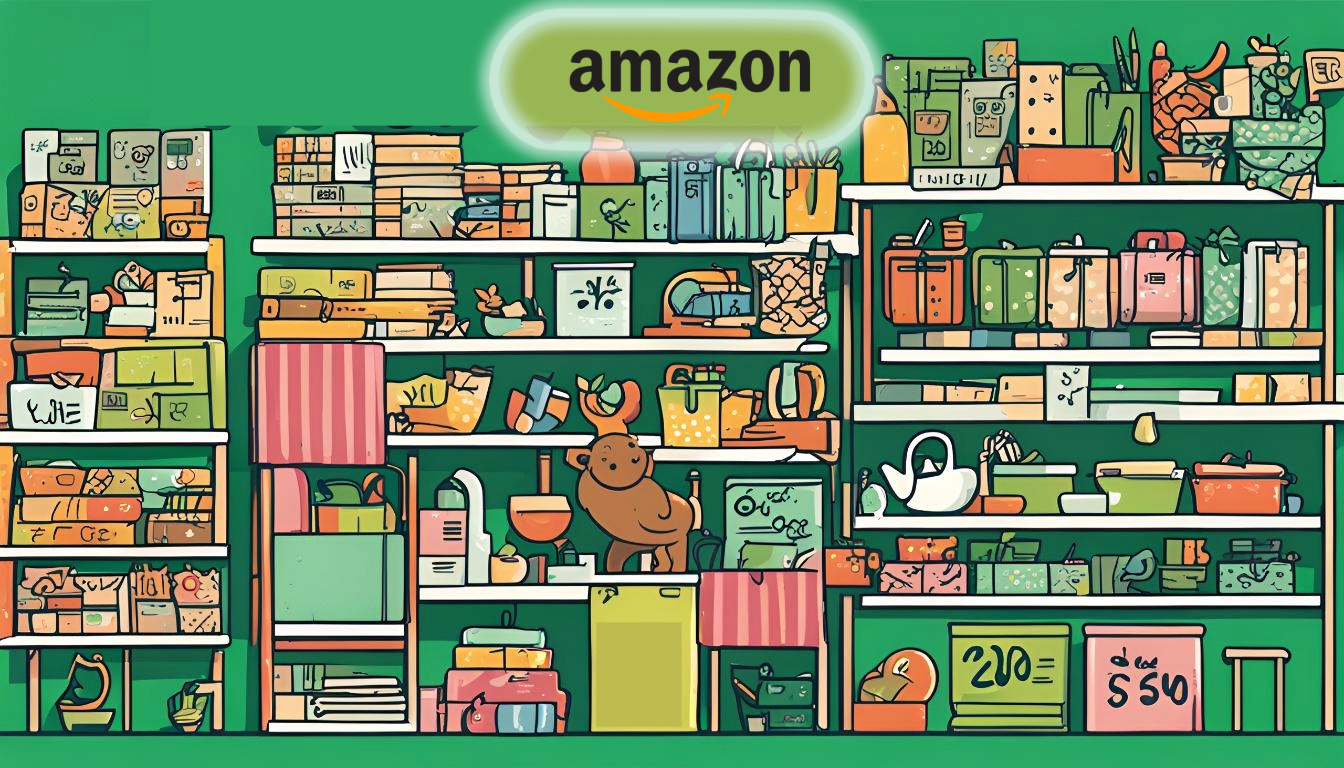Share this
How to Sell Toys on Amazon with Success
by Shipfusion Team on Nov. 11, 2024

Selling toys on Amazon offers a significant opportunity for ecommerce businesses to tap into one of the most popular product categories on the platform. From educational toys to the latest trending collectibles, the toy market on Amazon is a growing landscape with high demand, especially around peak seasons like the holidays.
But tapping into this potential takes more than listing a product; it requires thoughtful planning, from account setup and sourcing to marketing and optimization. Here’s how you can navigate these steps to build a successful toy-selling business on Amazon.
Setting Up Your Amazon Seller Account
Starting with the right foundation is crucial for long-term success. Before you can sell toys on Amazon, you’ll need to set up a seller account and go through verification. Here’s how to get started:
Choosing Your Selling Plan
Amazon offers two plans: Individual and Professional. If you’re just starting out or plan to sell fewer than 40 units a month, the Individual plan may suffice. But for businesses with more substantial inventory and growth plans, the Professional plan, with its additional tools and capabilities, is ideal.
Registering and Verifying Your Account
Go to Amazon Seller Central and follow the prompts to create your account. You’ll need personal details, bank account information, and valid identification. The verification process also involves linking your bank account, which Amazon uses for depositing payouts from sales.
Fulfilling Orders and Managing Shipments
For an edge in customer satisfaction, consider using Amazon’s Fulfilled by Amazon (FBA) program, which handles storage, packaging, and shipping. If you prefer to manage fulfillment independently, Shipfusion provides a range of services from inventory management to custom warehouse projects, and even FBA prep.
Choosing and Sourcing the Right Toys to Sell on Amazon
Finding the right toys to sell is more than a simple selection – it’s a strategic process based on demand, competition, and compliance. Here’s what to consider:
Evaluate Demand and Trends
Study market trends to identify which toys are in high demand and which niches might offer lower competition. For example, STEM (Science, Technology, Engineering, and Math) toys and eco-friendly options have gained traction due to increased interest in educational and sustainable products. Use tools like Jungle Scout or Helium 10 to gauge demand and assess profitability.
Ensure Compliance with Safety Standards
Toys sold in the U.S. must meet various safety regulations, such as the Consumer Product Safety Improvement Act (CPSIA) and ASTM F963. Ensure that all products come with proper certification and testing reports. Reliable sourcing partners can provide these documents, giving you confidence in your product’s compliance.
Source High-Quality Products
Partner with trusted suppliers who understand the toy market and compliance requirements. Many sellers choose to source from overseas suppliers for cost-effectiveness, but it’s crucial to vet them for quality and reliability.
On the other hand, domestic suppliers may offer faster lead times and better quality assurance. Some businesses choose third-party logistics providers like Shipfusion to handle the complexities of inventory management, offering additional flexibility and control over product quality.
Listing Optimization for Toy Products on Amazon
Once you have your products ready, optimizing your listings on Amazon is essential for visibility and conversion. Here’s how to make your toy listings stand out:
Create Descriptive and Keyword-Rich Titles
Amazon’s algorithm prioritizes product titles, so include essential keywords, product type, brand, and target age range where applicable. Keep the title clear and concise while focusing on terms shoppers are likely to search for.
Optimize Product Descriptions and Bullet Points
Use bullet points to highlight features, safety certifications, and unique benefits. Descriptions should not only inform but also create an emotional connection by addressing what makes the toy appealing to both kids and parents.
High-Quality Images Matter
Use high-resolution images that show the toy from multiple angles. Showcase how the toy works or provide a visual size reference. For example, showing a child using the toy can help parents better understand scale and usability. Amazon allows you to include up to seven images, so use this space wisely to capture every detail that might attract a buyer.
Encourage Customer Reviews
Positive reviews build trust, especially for parents seeking safe and reliable toys. Request feedback from customers, and consider using Amazon’s Early Reviewer Program or Vine program to get early reviews. Aim for genuine, detailed reviews that help new shoppers feel confident in your product.
Marketing and Promotions for Amazon Toy Sales
With optimized listings, it’s time to focus on driving traffic and sales. Amazon offers several advertising tools to help your products reach a larger audience, and additional marketing efforts off-platform can also boost visibility.
Utilize Amazon’s Sponsored Ads
Sponsored Products, Sponsored Brands, and Sponsored Display ads are all effective for driving visibility. Sponsored Products ads, for example, put your toys at the top of search results, capturing more eyes on high-traffic keywords. Sponsored Brands allow you to showcase your toy brand as a whole, ideal if you sell a range of products.
Leverage Lightning Deals and Coupons
Lightning Deals can help you gain visibility during key shopping periods, while coupons can attract budget-conscious shoppers. Running discounts during peak seasons like the holiday rush can significantly boost sales and ranking.
Run External Marketing Campaigns for Extra Visibility
Social media platforms like Instagram, TikTok, and YouTube are excellent for promoting toys, particularly through influencer partnerships. Influencers in the parenting and toy niches can drive targeted traffic directly to your Amazon listings. You can also use social media ads to promote product launches or seasonal sales.
Consider Email Marketing and Retargeting
For brands with a customer database, email marketing is a powerful way to promote new toy launches or special discounts. You can also set up retargeting ads on platforms like Facebook to reach shoppers who have already visited your listings.
Selling Toys on Amazon? Fulfill Them with Shipfusion.
Selling toys on Amazon can be a rewarding venture, but it takes a well-rounded approach to reach and engage your target customers effectively. By following Amazon’s policies, optimizing listings, and leveraging marketing strategies, you can increase visibility and conversions in a competitive market. Keep monitoring your sales metrics and gather insights to refine your approach over time.
If you’re ready to scale your toy-selling operation, working with a trusted logistics partner can streamline your processes and allow you to focus on growth. With robust fulfillment services, real-time tracking, and support tailored to the needs of Amazon sellers, Shipfusion is here to help you deliver a seamless experience to your customers and set your toy business up for lasting success. Contact us today.
Share this
You May Also Like
These Related Articles

How to Sell Paperback Books Online In 2025

How to Sell Internationally on Amazon In 2025

Top FBA Prep Providers: Streamline Your Amazon Business Today
- April 2025 (18)
- March 2025 (26)
- February 2025 (26)
- January 2025 (37)
- December 2024 (16)
- November 2024 (23)
- October 2024 (22)
- September 2024 (27)
- August 2024 (9)
- July 2024 (8)
- June 2024 (5)
- May 2024 (8)
- April 2024 (8)
- March 2024 (6)
- February 2024 (6)
- January 2024 (5)
- December 2023 (3)
- November 2023 (3)
- October 2023 (5)
- September 2023 (4)
- August 2023 (2)
- July 2023 (1)
- June 2023 (4)
- March 2023 (2)
- October 2022 (1)
- September 2022 (5)
- August 2022 (4)
- July 2022 (7)
- June 2022 (4)
- May 2022 (4)
- April 2022 (6)
- March 2022 (2)
- February 2022 (1)
- January 2022 (3)
- December 2021 (2)
- November 2021 (4)
- October 2021 (2)
- September 2021 (5)
- August 2021 (4)
- July 2021 (4)
- June 2021 (3)
- May 2021 (2)
- April 2021 (3)
- March 2021 (3)
- February 2021 (3)
- January 2021 (2)
- December 2020 (4)
- November 2020 (2)
- October 2020 (4)
- September 2020 (2)
- July 2020 (5)
- June 2020 (4)
- May 2020 (2)
- April 2020 (2)
- March 2020 (4)
- February 2020 (1)
- December 2019 (1)
- May 2018 (1)
- March 2018 (2)
- February 2018 (3)
- January 2018 (3)
- November 2017 (3)
- July 2017 (4)
- March 2017 (3)
- February 2017 (5)
- January 2017 (3)
- December 2016 (4)
- November 2016 (6)
- October 2016 (6)
- October 2015 (1)
- September 2015 (1)
- June 2015 (3)
- May 2015 (3)
- August 2014 (1)
- July 2014 (1)
- March 2014 (1)
- February 2014 (1)